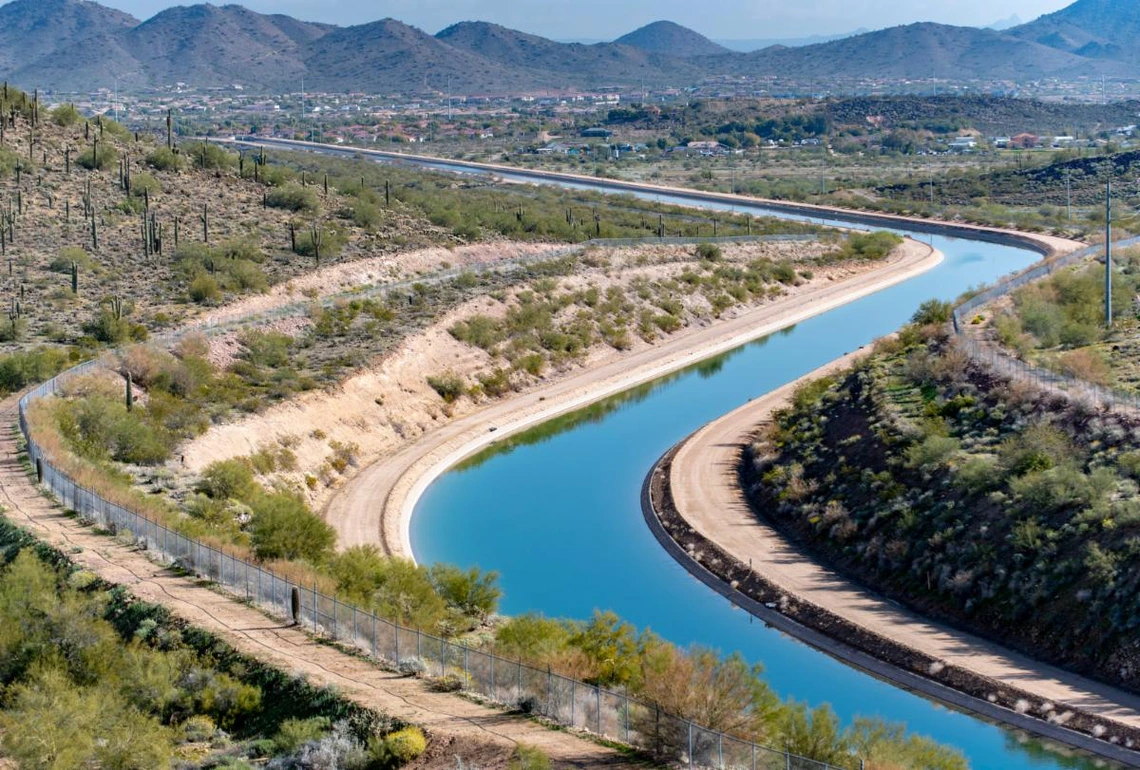Tier 2 Shortage Declared for 2023 – Basin States Fail to Reach Colorado River Usage Agreement
Aug. 19, 2022
Image

After Bureau of Reclamation Commissioner Camille Touton’s Senate testimony in June, the Colorado River Basin states had until Monday, August 15 to reach an agreement to save two to four million acre-feet of water in 2023, or Reclamation would take action to preserve the system. As WRRC Director Sharon B. Megdal explained in an interview with The Center Square, “The 2-4 million acre-foot water curtailment is an unprecedented ask, not only in size but in speed at which the states were asked to respond.” The deadline has passed with no agreement reached. In a press statement Tuesday, officials from Central Arizona Project (CAP) and Arizona Department of Water Resources (ADWR) explained that “The Basin States have not yet produced a viable plan nor has the United States proposed a plan that achieves the protection volumes identified by the Commissioner. Achieving volumes at this magnitude will take significant contributions by all water users in the Colorado River Basin.”
On Tuesday, Reclamation announced that their latest forecast predicts water levels in Lake Mead will fall to 1036 ft by the end of 2022, triggering a Tier 2a shortage declaration for 2023 under the Drought Contingency Plan (DCP). For Arizona, this means a reduction of 592,000 acre-feet of CAP deliveries—a reduction of an additional 80,000 acre-feet beyond current Tier 1 shortages. These new reductions will primarily impact Tribes and Phoenix area cities. Nevada and Mexico will also face river shortages in 2023, but, per the terms of the DCP, California will not. In Tuesday’s press statement, Arizona officials asserted that “It is unacceptable for Arizona to continue to carry a disproportionate burden of reductions for the benefit of others who have not contributed.” Arizona officials did propose a plan during the state negotiations, which was rejected. Due to the confidentiality of the negotiation process, the details of that plan are not available to the public.
Federal plans to take long-term action are still in development. Department of the Interior (DOI) Assistant Secretary for Water and Science Tanya Trujillo made a statement, saying “The Interior Department is employing prompt and responsive actions and investments to ensure the entire Colorado River Basin can function and support all who rely on it.” Reclamation’s Commissioner Touton reiterated that “Reclamation remains fully committed to working in a consensus manner across the Upper and Lower Basins, with Tribes, and with the country of Mexico.” A DOI press release outlined a rough plan, including efforts to ensure the structural integrity of Glen Canyon Dam, administrative initiatives to “ensure maximum efficient and beneficial use” of water from Lake Mead, technical studies to determine the feasibility of modifications to Hoover Dam to allow water to be released below the current “dead pool” elevation, possible additional releases from Upper Basin reservoirs to maintain water levels at Lake Powell, and investment in system conservation and voluntary agreements between entities. The DOI press release concludes saying, “The Department’s approach will continue to seek consensus support and will be based on a continued commitment to engage with partners across the Basin states, Tribes and the country of Mexico to ensure all communities that rely on the Colorado River will provide contributions toward the solutions.”
Image: Ted Wood / The Water Desk, Central Arizona Project, Phoenix
Learn More:

